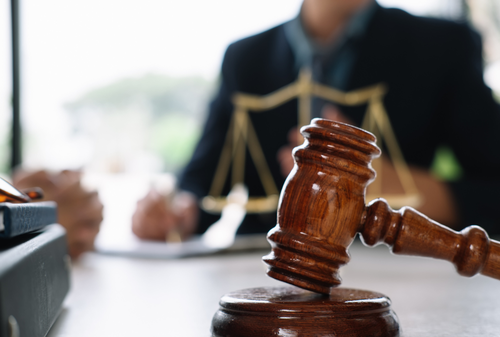Sexual assault is one of the most serious offenses under the law, carrying serious emotional, psychological, and legal consequences. It’s a term that encompasses a wide range of actions, often misunderstood by many people.
Understanding the legal definitions and implications of sexual assault is not only critical for protecting oneself but also for fostering a safer community. We’ll look at what constitutes sexual assault, how it’s defined, the legal repercussions, and what steps to take if you find yourself involved in such a case, including speaking with a sex crimes defense lawyer.
Defining Sexual Assault
Sex crimes in Florida cover a wide range of offenses that law enforcement and the judicial system take very seriously. It’s crucial to understand what constitutes a sex crime in Florida, whether you’re facing such charges or need to safeguard your rights.
Sexual assault, as defined by Florida law, involves “oral, vaginal, or anal penetration with, or by, the sexual organ of another person or the vaginal or anal penetration of another with or by an object.” Typically, sexual assault charges arise when someone is accused of forcing another individual into a sexual act without their consent.
Sex crimes often associated with sexual assault include the following:
- Statutory rape
- Non-consensual physical contact
- Rape and attempted rape
- Uninvited sexual contact
- Sexual harassment
- Sexual misconduct
- Indecent exposure
- Child molestation
- Sexual battery
The crime of sexual assault often brings emotional distress, shame, and mental trauma to the alleged victim. Due to public awareness and advocacy, penalties for sexual assault have grown significantly harsher nationwide.
Among the various forms of sexual assault, rape is the most commonly reported. It involves sexual intercourse with someone who has explicitly stated their unwillingness or someone who was incapable of giving consent.
An individual may be unable to consent if they are:
- Under the age of sixteen
- Diagnosed with a mental illness
- Intoxicated or unconscious at the time of the act
Sexual assault differs from harassment or abuse in that it involves non-consensual sexual contact, while harassment may involve repeated unwanted behaviors that don’t necessarily include physical contact. Abuse, on the other hand, could span physical, emotional, and sexual harm, encompassing a broader range of misconduct.
Key Elements of Sexual Assault
Sexual assault cases revolve around several key elements that prosecutors and defenders must prove or challenge:
Non-Consensual Contact
Consent is a crucial element. For sexual activity to be lawful, all parties involved must give informed, voluntary, and affirmative consent. If consent is absent, the act is classified as assault.
Force, Coercion, or Threats
The use of force, manipulation, or threats to gain compliance nullifies the victim’s consent. These methods include physical violence, verbal intimidation, or psychological manipulation.
Incapacitation of the Victim
If the victim is incapacitated due to alcohol, drugs, or unconsciousness, they cannot legally consent. Engaging in sexual activity under these circumstances is considered sexual assault under Florida law.
Types of Sexual Assault
Sexual assault can take many forms, and understanding the distinctions can clarify its scope:
Physical Assault
This includes acts such as groping, molestation, and rape. Physical assault is characterized by unwanted sexual contact.
Verbal Assault
Threats, coercion, or verbal pressure designed to compel someone into sexual activity fall into this category. These acts, while not physical, are still damaging and illegal.
Digital Assault
The misuse of technology, such as distributing intimate images without consent or forcing someone to engage in online sexual acts, constitutes digital assault. This is becoming increasingly recognized under the law.
Who Can Be a Victim or Perpetrator?
Sexual assault can happen to anyone, regardless of gender, age, or socio-economic background. Likewise, perpetrators can come from all demographics.
Examples include:
- Men or women assaulted by acquaintances, family members, or strangers.
- Children abused by trusted adults.
- Individuals in workplaces experiencing misconduct from superiors or colleagues.
Understanding that sexual assault doesn’t fit into a single narrative helps dispel stereotypes and broadens awareness.
Common Misconceptions About Sexual Assault
Many myths and misconceptions surrounding sexual assault hinder its prevention and fair legal handling.
- Myth: Sexual assault only involves strangers.
Fact: A majority of cases involve individuals who know each other, such as friends, co-workers, or intimate partners.
- Myth: It only counts as assault if physical violence occurs.
Fact: Emotional manipulation, threats, and exploitation of vulnerability are equally damaging and legally recognized as assault.
- Myth: False accusations are rampant.
Fact: Studies show that false accusations are rare compared to the underreporting of sexual assault incidents.
Legal Consequences of Sexual Assault
Penalties for sex crimes in Florida can be severe, often including lengthy prison sentences, substantial fines, and mandatory registration as a sex offender. The severity of these penalties depends on several factors, such as the nature of the offense, the age of the victim, and whether the defendant has prior criminal convictions.
For example, a conviction for sexual battery can result in life imprisonment, especially if the victim is a minor. Lesser offenses, such as indecent exposure, may carry shorter jail terms and fines but still impose the significant burden of sex offender registration.
Sex Offender Registration
One of the most impactful consequences of a sex crime conviction is the requirement to register as a sex offender. This registration imposes strict legal and social limitations that can significantly alter the individual’s life.
- Residency Restrictions: Registered sex offenders are often prohibited from living near schools, parks, or other areas frequented by children.
- Employment Limitations: Finding stable employment can be challenging, as many employers are hesitant to hire individuals with a sex crime record.
- Social Stigma: The label of a “sex offender” carries a profound social stigma that affects personal relationships and standing within the community.
Probation and Supervision
In addition to prison sentences, individuals convicted of sex crimes are frequently placed on probation or supervised release. These measures come with strict conditions to ensure compliance and minimize the risk of reoffending.
- Regular Check-ins: Convicted individuals must regularly meet with their probation officers.
- Internet Restrictions: Some are barred from accessing the internet, particularly social media, to reduce the risk of further offenses.
- Mandatory Counseling: Participation in counseling or rehabilitation programs is often a required part of probation or supervised release.
The consequences of a sex crime conviction are far-reaching and can affect nearly every aspect of an individual’s life. Seeking experienced legal representation is crucial to understanding your rights and navigating this challenging process effectively.
What to Do if You’re Accused of Sexual Assault
If you have been charged with sexual assault in Florida, the most important step is to remain calm and not speak to law enforcement without an attorney present. Provide only your name and address, then politely assert your right to legal representation before saying anything further. Clearly state that you will not answer any questions until your attorney is there.
Even if you are innocent, don’t assume the charges will simply disappear. Taking no action can lead to wasted time and missed opportunities to build a strong defense. While you are presumed innocent until proven guilty, the reality is that facing a sexual assault charge often involves combatting stereotypes, biases, and prejudice.
It’s crucial to understand that law enforcement and prosecutors may focus heavily on the accuser’s claims without fully considering their motivations or the possibility of false allegations. Once a sex crime has been alleged, the justice system can often feel heavily tilted against the accused.
Steps to Take While Preparing Your Defense
Document Everything: Start by creating a detailed timeline of events related to the allegations. Include every detail you can remember, such as dates, locations, and any communications you had with the accuser. These notes can be invaluable to your defense attorney as they build your case.
- Monitor Conversations: Be extremely cautious about what you say and to whom you say it. Avoid discussing the case with anyone except your attorney. Even well-intentioned conversations with friends or family could unintentionally harm your defense if misinterpreted or shared.
- Expect Delays: The legal process can be slow, and during this time, your life may feel turned upside down. While it’s a frustrating experience, use the time to work closely with your attorney and stay as organized as possible to strengthen your defense.
- Understand What’s at Stake: Facing sexual assault charges can be an emotionally and mentally taxing experience, as the consequences of a conviction are severe. These charges demand a proactive and meticulous approach from both you and your attorney to protect your rights and your future.
Resources for Victims and Those Accused
Whether you’re a victim seeking support or someone accused and needing defense, resources are available:
- Victim support: Organizations such as the National Sexual Assault Hotline (RAINN) provide free and confidential services.
- Legal assistance: Experienced local attorneys and public defenders can offer guidance tailored to your situation.
- Counseling services: Both victims and accused individuals can benefit from therapy to navigate the emotional impacts.
Get a Free Strategy Review With Our Sex Crimes Defense Lawyer
Sex crime charges are among the most challenging to confront, defend, and resolve. Attempting to navigate this process alone can lead to severe, life-altering consequences. These accusations are serious, and it’s important to prioritize your future by securing the right attorney to defend your case effectively.
If you’re dealing with a sexual assault case—whether as a victim or someone accused—seek expert legal help from the team at Malcolm Anthony, PA to guide you through the process. We are an experienced criminal defense law firm in Ponte Vedra Beach, FL, and we’re here to offer the legal expertise you need. Reach out today at (904) 285-4529 to schedule a free consultation.



